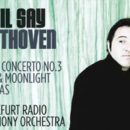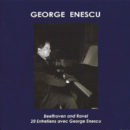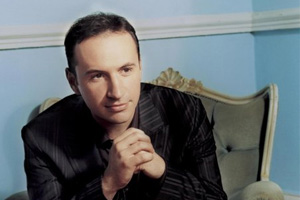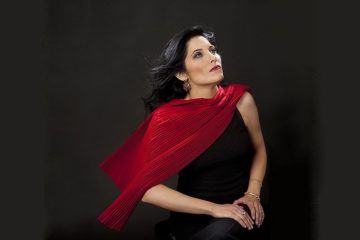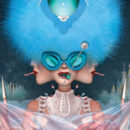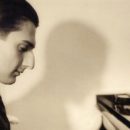
Franco Fagioli: “Being countertenor today is not the same as it was some twenty-five years ago”
In recent years, when the musical world has been enjoying the presence of extraordinary countertenors, from Philippe Jaroussky to Max Emanuel Cenci, the emergence of Franco Fagioli is an event, both because of his outstanding virtuosity and of his musical intuition belonging to the choosen ones.
How do you explain the interest of the public for counter-tenors, especially in the last ten-fifteen years? Do you believe it is just an interest of the public for baroque music?
It seems that there has always been an interest of the public, who feels that it is spectacular to listen to a man who sings in very high notes. During the times of the castrated singers, the public was very much interested in these vocal phenomena, but I believe there was also an interest of the people for the physical situation of the singers. Certainly, these singers were extremely well prepared for the singing; since their childhood. I believe that the interest was first of all due to the fact that these men were singing very high notes from a difficult and complex repertoire. Today, it is something different and unique for a man to play in a high note. Anyway, there are several types of counter-tenors and not all of them sing in the same vocal register, because – just like there are sopranos or mezzo-sopranos – there are sopranos, mezzos and contraltos. After the `50s, when Alfred Deller started to rediscover all these old music pieces from Purcell to Händel, and he made this manner of playing known again, the technique of counter-tenors has slowly started to win back the attention of the public. However, being a countertenor twenty years ago was different from being one today. Fortunately, the technique of counter-tenors has developed today in a good way and they are accepted, more or less, just as any other type of singer, just like the sopranos or the tenors. But, I believe there is a connection between the interest for a man who sings very high notes and the interest for baroque music. We are always presenting new – or long time neglected – opera plays, and the baroque music lovers are very interested to make these rediscoveries. Going back to your question, I think there is a mixture between two elements: the interest of the people for counter-tenors – because they are special and different –, and the repertoire of counter-tenors, meaning baroque music.
Your voice was compared to Cecilia Bartoli`s. Do you find any resemblance?
First of all, this comparison is a compliment for me. Cecilia Bartoli is an extraordinarity talented singer. I know her, we often meet and we are very close friends in this job, so your observation is a compliment. When I started taking canto lessons for counter-tenors, my professors were used to normal voices, as sopranos or baritones, so they were teaching me the Italian belcanto technique. Right before I started singing Händel or baroque music, I was singing arias by Rossini or Bellini, meaning belcanto. Therefore, I learnt this technique since the beginning, and Cecilia Bartoli shares the same love for the Bel canto School. Sometimes this is an inspiration for me and maybe this is the reason why I have this manner of playing that is close to the belcanto.
The last opera plays you have recorded were completely unknown to the public: Siroe and Re di Persia by Hasse, Catone in Utica by Leonardo Vinci. What are the problems that a musician is facing when he sings at an international premier?
Yes, indeed, these are my last recordings. In addition, I have the solo CDs with Caffarelli and Porpora, who fall in the similar musical genre. The challenge is represented by the fact that the music was written in particular for castrati and it implied a lot of preparations. Today, whenever we interpret this music, we must understand that it was written for particular voices and people, therefore each aria represents a challenge for any singer. Regarding the vocal technique, this Neapolitan baroque music is quite difficult. It doesn`t seem difficult because it is sang by highly trained people, but – technically speaking – the voice is used as an instrument. And for this you must be very well prepared, vocally speaking.
Since we are talking about challenges, do you believe it is more difficult to prepare these arias in comparison with the ones that are much more in the public eye, for example Händel?
Yes, but Händel is different from the other composers because he had attempted to produce a baroque musical compendium, creating thus an own style of making operas and music. Unlike the Neapolitan composers such as Porpora, Vinci, Leo, Mana, Hasse, who were more or less in the service of the singers for whom they wrote the music, Händel, despite the fact that he was writing for famous singers like Celestino, Carestini, was interested in composing in his own personal style, creating a more accessible musical language. This is perhaps why Händel is more famous today than other Neapolitan Neapolitan composers. He succeeded in creating a style that is not such a big challenge for singers like other Neapolitan composers, but his style is attractive and accessible for the public and for the actually enacting of the opera piece.
You have mentioned Caffarelli. What do you think he had special?
The recording of the album Arias for Caffarelli represented an opportunity for me to discover one of the most important figures of the Baroque era. Cafarelli was one of the best artists, together with Farinelli, Senesino, Carestini and other famous castrati. But Cafarelli was special because he was an incredibly good artist, very, very talented and also special, due to his difficult personality. Anyway, I wanted to produce an album for Caffarelli because no one has ever paid homage to this great singer. We know many things about Farinelli, Carestini or Senesino, there are a lot of CDs on the market with them, but none with Caffarelli. Also, Caffarelli was a student of Porpora, his great composer, a teacher of Farinelli and Senesino. Porpora himself once told Caffarelli: ,,Go and sing all throughout Europe, because there is nothing I can teach you anymore.” Caffarelli`s music was special, written by Neapolitan composers and showed how flexible his voice was – not only in high vocals, but also in slow arias, where he was capable of singing long phrases in high notes. All these prove he was an incredible singer, with a special talent.
Yes, absolutely. In Catone in Utica you sing on the same scene together with some known counter-tenors like Cenčič‡ and Sabadus. How do you feel about these duets?
It is an extraordinary situation. First and foremost, we are all friends because we work very much together, so producing these operas is a lot of fun. It is very interesting to share the scene with your colleagues because you can learn so much when you are listening to the others play. We also must be aware that this sort of operas are exclusively for men. Operas like Artaserse by Vinci had their premier in Rome in a time when women were not allowed to sing on the scene, so the castrati would interpret both masculine and feminine roles. This is why, Catone had such a premier – men also performed the feminine parts. I believe it is an extremely interesting show, because it shows the various sides that an artist can play on the scene. Over and above that, it is the way it is due to the historical side.
Who was your model at the beginning of your career? Who have you admired the most?
Right from the beginning, it was clear for me I wanted to become a counter tenor. I immediately fell in love with the mezzo-sopranos, artists like Anne Sofie von Otter or Jennifer Larmore or Cecilia Bartoli. For me, the mezzo-sopranos represent a model. I have made efforts to learn as much as possible from them.
Who is the artist with whom you would love singing in the near future?
I already had the opportunity to sing together with many talented artists like Cecilia Bartoli, Jonas Kaufmann, Placido Domingo or Vesselina Kasarova. These are great names. It was a huge joy for me, an opportunity to learn so much. Usually, I sing with them on the scene. I don`t know with whom I`d love singing, there are many colleagues with whom I’d love sharing the scene with. In any event, I am always open to the idea of singing together with my colleagues, because I think it is an important opportunity to learn and exchange experiences.


